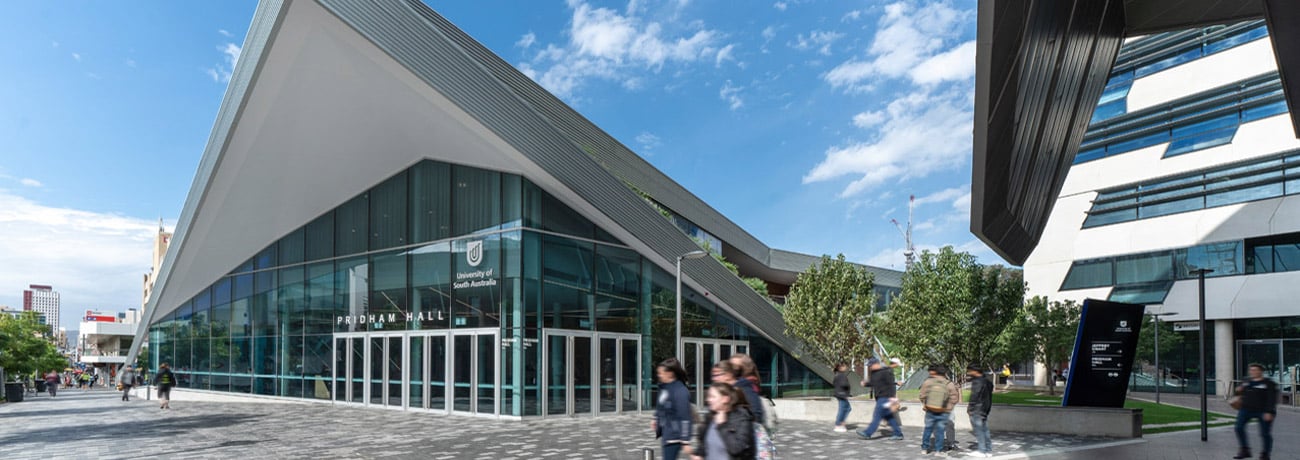

Applicants must have successfully completed a Bachelor degree in civil engineering or a related discipline. A related discipline may be other four-year duration engineering or science degrees depending on the specialisation selected.
Applicants who have successfully completed a Bachelor degree in civil engineering, or a Graduate Certificate in civil engineering, are eligible to enter the program with 0.5 EFTSL Advanced Standing and complete the program in 1.5 years of full time study or equivalent part time study.
Applicants who have successfully completed an Honours degree in civil engineering, or a Graduate Diploma in civil engineering, are eligible to enter the program with 1.0 EFTSL Advanced Standing and complete the program in 1 year of full time study or equivalent part time study.
Applicants who do not meet the standard entry requirements, will be assessed on a case by case basis by the Program Director.
English Language Requirements:
IELTS score of 6.5 (with 6.0 in Reading and Writing); TOEFL iBT score of 79 with Reading and Writing not less than 18; TOEFL paper-based test (PBT) score of 577 with TWE of 4.5; Cambridge CAE/CPE score of 177; Pearson's test of English (Academic) (PTE) score of 58 with Reading and Writing communicative scores not less than 50; CELUSA score of AE5.
Civil and structural engineers are responsible for the infrastructure and resources that keep our cities, towns and rural areas functioning. They focus on the design and construction of buildings, bridges and other structural components of an infrastructure.
In this degree you’ll develop sophisticated skills in engineering research methods and project management which you will use on a major civil engineering design project, with industry representatives as your clients. You will also complete a master thesis.
Graduate career-ready by completing the UniSA STEM Professional Practice Program and gain at least 450 hours of skills and competencies through a range of engagement activities such as placements, internships, guest lectures, industry panels, site visits, networking and events.
If you already have qualifications in civil engineering, you could be eligible for and complete this degree in less than two years. If you decide to exit this degree having successfully completed the first year, you will receive a graduate diploma qualification.
What you'll learn
You will learn advanced structural and geotechnical civil engineering, developing the skills to:
apply and synthesise civil engineering theories in solving practical infrastructure problems
create and design models to be used in infrastructure design and analysis
adapt data analysis methods at an advanced level
utilise advanced modelling techniques to solve a range of practical problems in civil engineering
develop advanced skills to communicate with civil engineering and related professionals
Through the electives available, you can choose to focus extensively on project management and leadership as part of this degree. Also key to the degree is the development and application of research methods and skills. These will be invaluable when you begin work on your master thesis.
Our UniSA STEM Professional Practice Program allows you to apply the skills and knowledge you've acquired throughout your degree in real-world settings.
Your career
There are a wide range of career options for highly qualified engineers, with employment opportunities in engineering consulting firms, construction companies, and local, state and federal government. You could consider:
engineering project manager: ensuring projects are completed according to project plans; managing project team resources; scheduling, preparation and resource forecasting for engineering and other technical activities; managing vendors and suppliers
engineering operations manager: supervising and leading teams of engineers, scientists and technicians who work on projects; overseeing production and quality control; directing operations, testing and maintenance; planning and scheduling, client consulting, budgetary responsibilities
civil engineer: responsible for the design, construction and testing of physical infrastructure; assesses the impact of large scale projects on the environment
structural engineer: works with architects, builders, mechanical, electrical and chemical engineers to make sure all parts of a structure are safe and fit for purpose; makes sure materials are used efficiently and appropriately
Level of Study: Masters Degree (Coursework)
Duration: 2 years
CRICOS Course Code: 088538E
English Requirements: IELTS Score UG 6
Annual Tuition: AUD$41,200.00
Disclaimer: The listings provided on the StudyAdelaide.com website are for information and promotional purposes only. The information, content and material provided in the listings is the sole responsibility of each education provider. While every care has been taken in preparing the information published on this website, StudyAdelaide does not guarantee the accuracy or currency of the content.